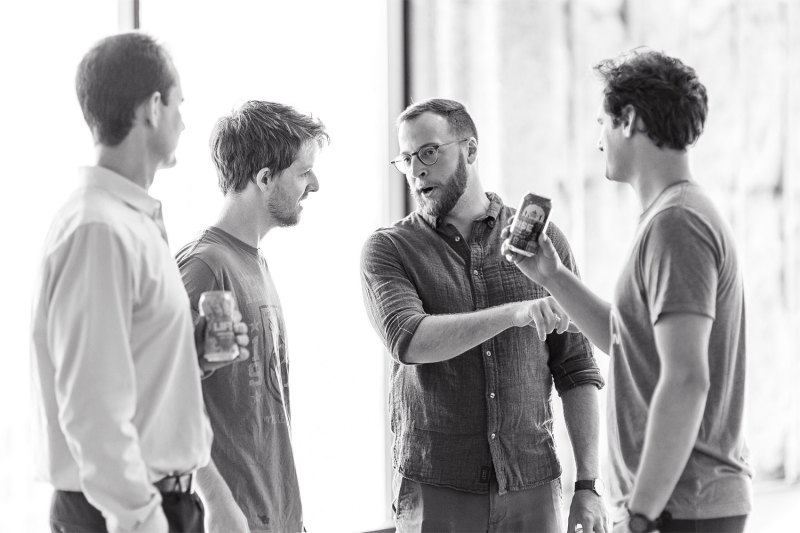Today, Jay Clouse devotes most of his professional life to helping other people with their professional lives. He encourages any who wants to do so to take the plunge into self-employment, whether as a freelance writer, a musician, a business consultant, or whatever else makes use of a person’s skills and passions — keeps them out of the traditional workforce.
Why? Because Clouse genuinely believes that the “solopreneur” approach to work is a fine approach, and one never better suited to the times than today. And no, we’re not talking about gig life; we’re talking about a career, just one without a bunch of bosses to whom you have to answer.

The only huge, glaring, terrifying problem? That means you’re your own boss. And your own HR team. And your own direct report. So yeah, you might want a bit of help getting started.
Enter Clouse, who arrived at his current position via a career in the startup space. Startups were, as he puts it, “alluring and just in vogue in the 2000s.” They were, at the time, the antidote to working in a more traditional corporate setting. He started a ticketing company (think StubHub), which he built up and then burned out on and sold. Next, he took a job at a venture-backed startup in the healthcare field, and “after about a year,” he says, “I finally realized I really didn’t like having a boss. So I decided to go back out on my own and have been essentially freelancing ever since.”
In the early days of Clouse’s second go at being his own boss, he assumed he would be serving primarily as a consultant for startups, but instead found “lots of individual professionals — creatives — coming to me looking for help getting their businesses going. So many of them were super talented, were so good at creating projects, at creating work for their clients, but they just had no idea how to run a business. They weren’t comfortable with the ins and outs, with finance, with organization.”

Clouse worked with multiple clients from all walks of life, helping them create business plans and models for themselves. With the hours put in to set up a genuine framework on which the logistics, organization, communication, operations, and, of course, the budgeting of a solo operation can stand secure, the freelancer was then free to focus on the work, be it journalism, editing shows or audio programs, writing software, making music, consulting, public speaking, and so on.
Related Reading
Clouse found himself streamlining the way he helped teach “really talented people who did great work make a living doing it. And that’s really been the through-line here.” This led Jay to create the Freelancing School, a program that let him reach a larger group of people than his one-on-one work, connecting with individuals who might not have the grounding in the nitty-gritty of business operations how to be their own business without running it into the ground.
He sums up the goal informing all of his work as: “Helping creative people become sustainable and thriving business owners.”

Clearly, he had hit on something with appeal even beyond his own clients and trainees. Clouse next went on to start a podcast, Creative Elements, in which successful (often wildly successful) creative individuals discuss not their work — their art, writing, or music, e.g. — but instead about how they built up and maintain their personal brands as a business. Every Tuesday, episodes drop featuring people like Seth Godin and Ash Ambirge addressing topics you’ve likely never heard them cover even if you know their work well.
So, how can you take the plunge yourself and make working for yourself work? First, you need to know what skills you (genuinely) bring to the table, then how to bring them to the table.
“Having valuable, diverse skills that are in demand is critical, and so is building a name for yourself as someone who has those skills,” Clouse explains. “And then get comfortable with money — with budget and financing, the more boring stuff that comes with freelancing. Because when you know your budget, you know what you can spend as you build up: paying for leads, a site, marketing yourself. If you can get comfortable with that finance stuff and not outsource it, if you see it as part of the job, you’re going to be so much better off.”
As for the types of careers that best lend themselves to freelancing, Clouse wants you to think beyond being a writer, consultant, or another prototypical freelance job. “The more your skills can be used digitally, the more effective you can be freelancing. If you’re really good with different software programs, like from the Adobe suite, even Microsoft programs [like Excel], or with production, like audio for a podcast — if you have those technical skills, those can be monetized because most people frankly don’t have those [skills].”

Once you know what you can do and what want to do (and you have gotten comfortable with money) Clouse urges people to make sure they position themselves properly for the best chance at success. “Think about how to offer your services online; how you’ll differentiate and reach the right clients online,” he says. “Think about how you’re going to build your own network and pipelines of people who will want to work with you. And the best way to do that is a lot of outreach, and effort to build real relationships, both online and offline. And come up with a way to make it really easy to explain what you do in a way that people will remember it. Then rinse and repeat that over and over and over again, and soon some of those people will be hiring you themselves, or recommending you to people in their network.”
So, should you take the plunge and go freelance? Yes, if you want to.
“If you’re drawn to it, I think you should go for it,” says Clouse. “It’s not for the faint of heart, it can be a lot of work, but the story of job security we grew upon and were sold on is a total myth. If you can do it on your own you’ll be more secure, not less.”
Editors' Recommendations
- You can now get 5,000 free audiobooks — and they use your own A.I.-generated voice
- You Can Now Buy Your Own Private Island on Australia’s Great Barrier Reef


